in Thoreau’s Journal:
Much cold slate-colored cloud, bare twigs seen gleaming toward the light like gossamer, pure green off pines where old leaves have fallen, reddish or yellowish brown oak leaves rustling on the hillsides, very pale brown, bleaching almost hoary fine grass or hay in the fields, akin to the frost which has killed it, and flakes of clear yellow sunlight falling on it here and there, —such is November. The fine grass killed by the frost, and bleached till it is almost silvery, has clothed the fields for a long time.
Now, as in the spring, we rejoice in sheltered and sunny places. Some corn is left out still.

The sunlight is a peculiarly thin and clear yellow, falling on the pale-brown bleaching herbage of the fields at this season.
In one light, these are old and worn-out fields that I ramble over, and men have gone to law about them long before I was born, but I trust that I ramble over them in a new fashion and redeem them.
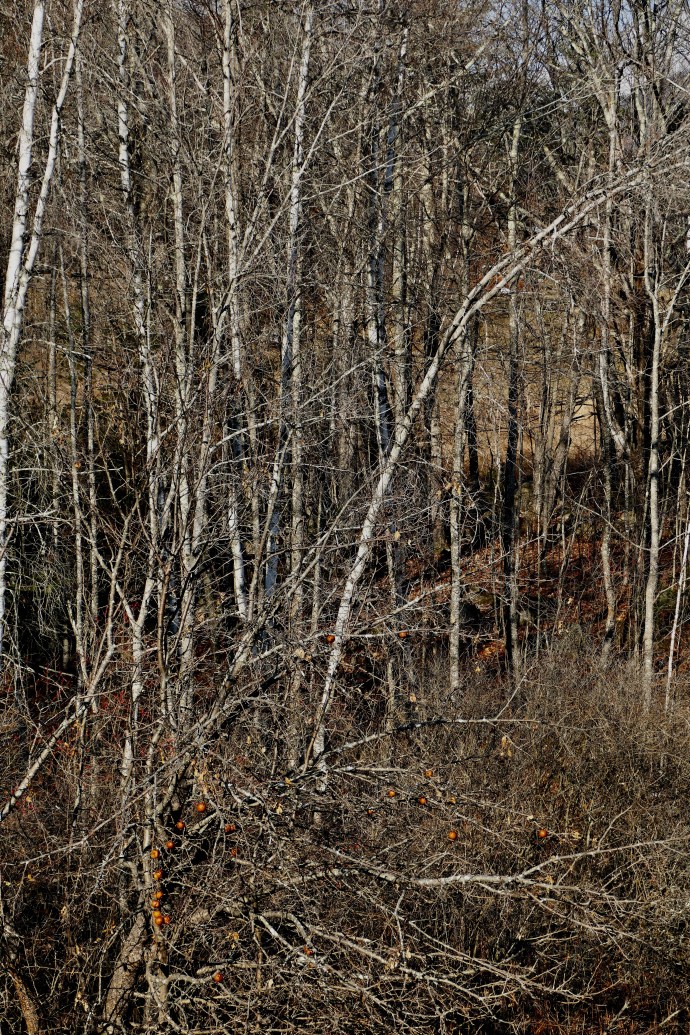




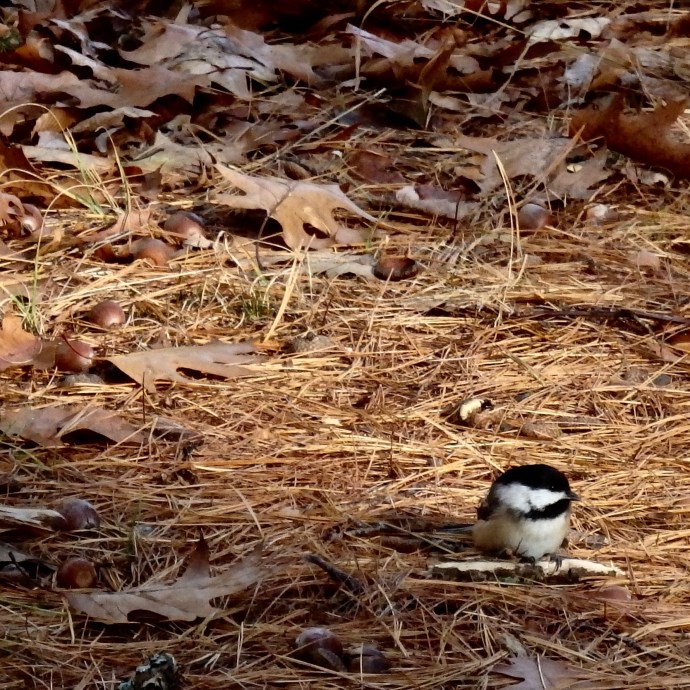

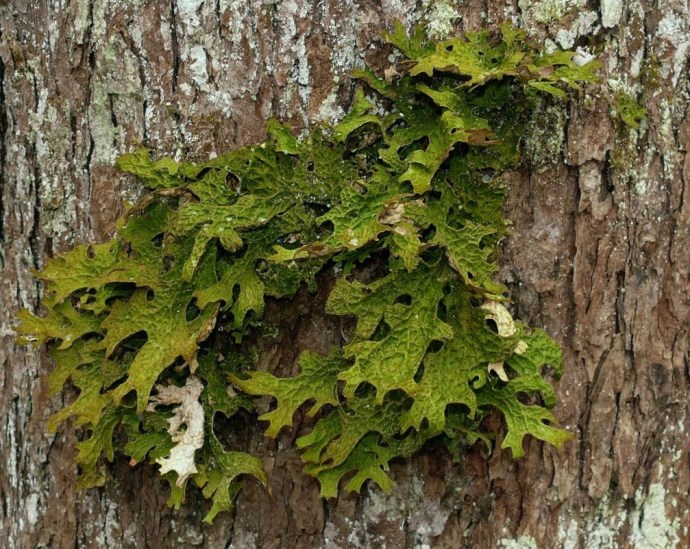
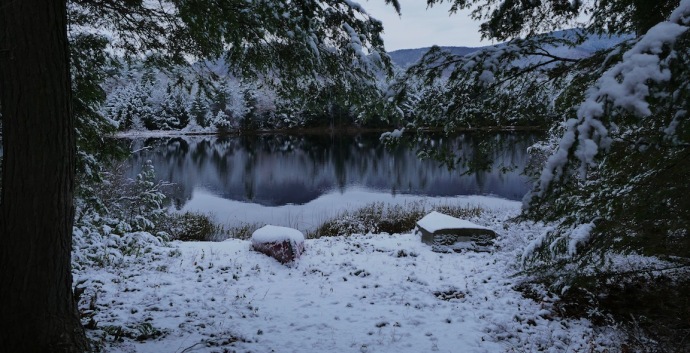

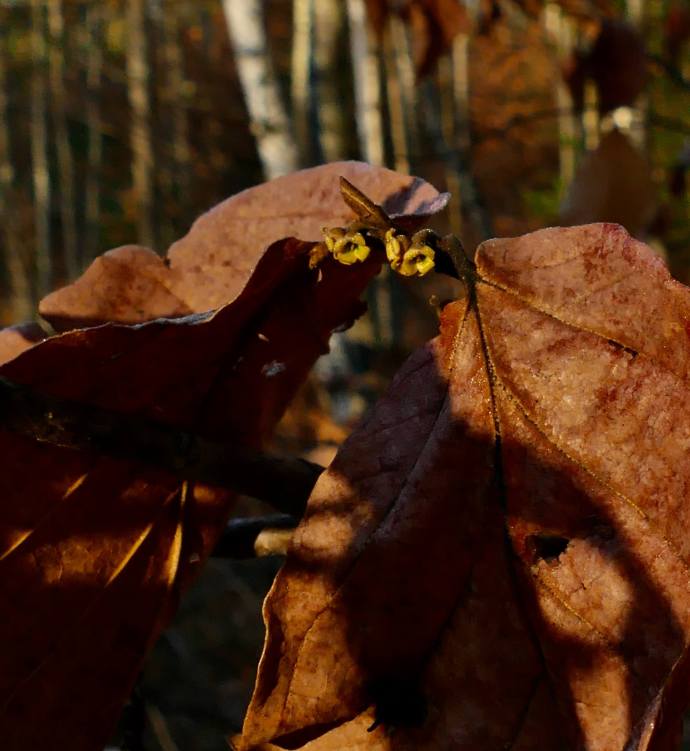







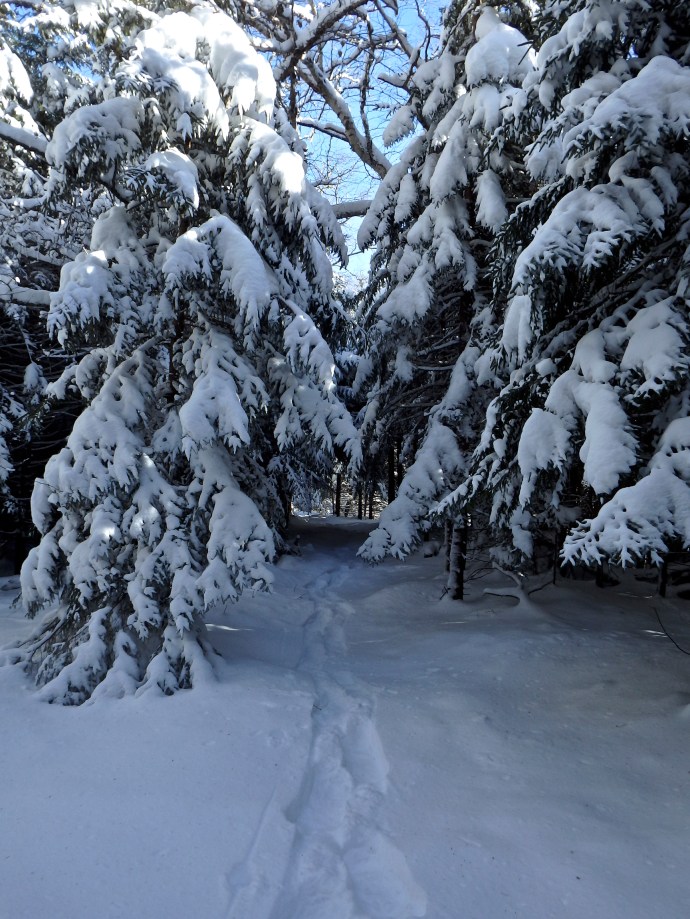

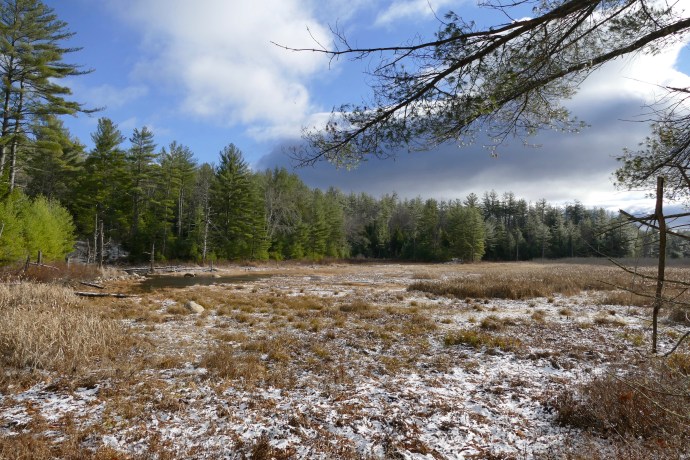
You must be logged in to post a comment.